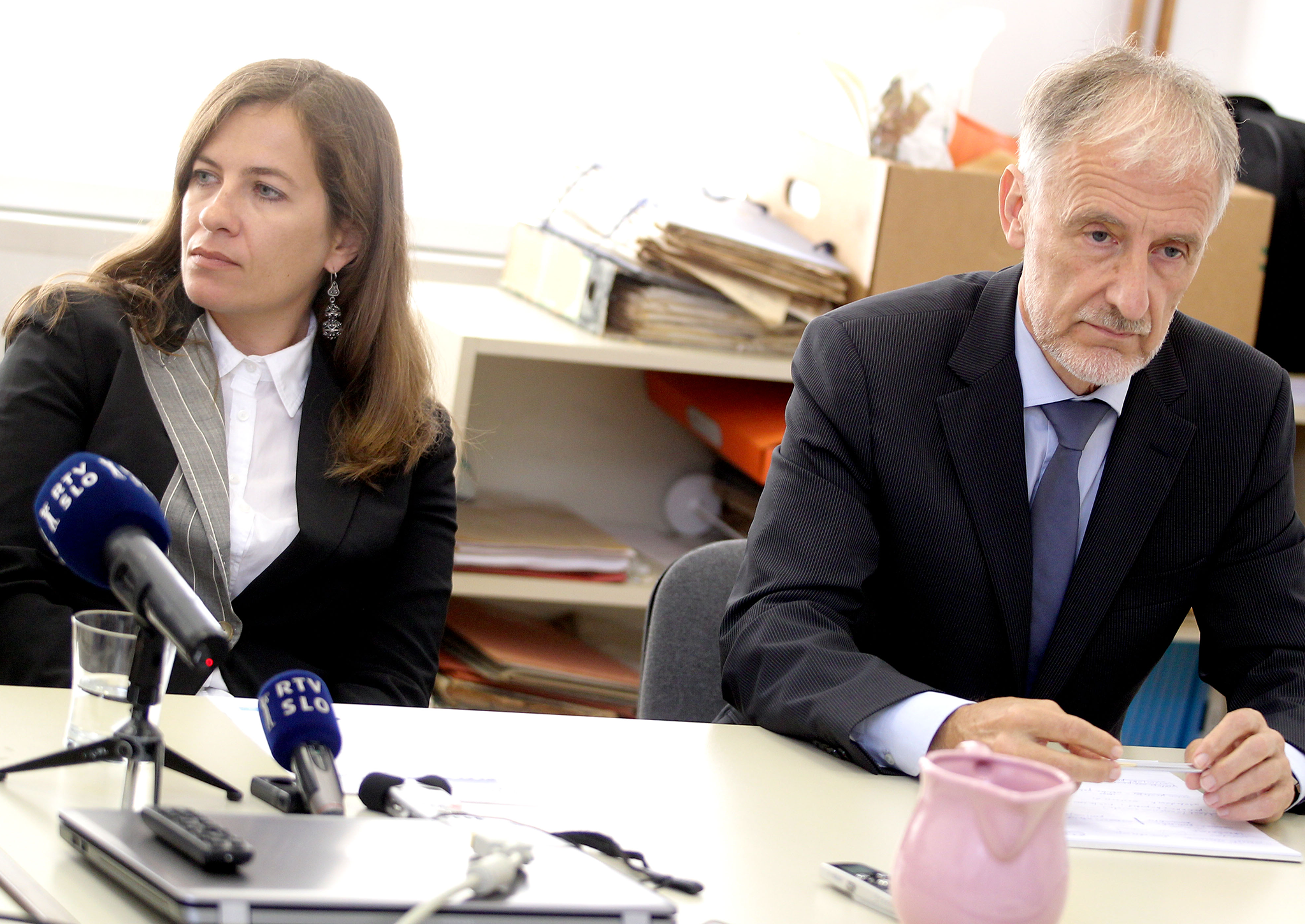Voices in Danger: Slovenian journalists are being locked in a senseless battle with Kafkaesque laws
'When a journalist is being prosecuted for doing their job the entire profession is on trial'

Your support helps us to tell the story
From reproductive rights to climate change to Big Tech, The Independent is on the ground when the story is developing. Whether it's investigating the financials of Elon Musk's pro-Trump PAC or producing our latest documentary, 'The A Word', which shines a light on the American women fighting for reproductive rights, we know how important it is to parse out the facts from the messaging.
At such a critical moment in US history, we need reporters on the ground. Your donation allows us to keep sending journalists to speak to both sides of the story.
The Independent is trusted by Americans across the entire political spectrum. And unlike many other quality news outlets, we choose not to lock Americans out of our reporting and analysis with paywalls. We believe quality journalism should be available to everyone, paid for by those who can afford it.
Your support makes all the difference.At least half a dozen journalists have been charged or threatened with criminal indictments in the last 12 months under the Criminal Code of the Republic of Slovenia.
One such investigative journalist is Anuška Delić, of the Ljubljana-based daily national newspaper Delo, who has been battling what has amounted to a Kafkaesque process.
Delić published an article in Delo ahead of the December 2011 Slovenian elections that allegedly a linked between neo-Nazi group Blood and Honour Slovenia with and members of the Slovenian Democrat Party and military.
She “sensed that something was cooking” when Blood and Honour published a counter-article on their website in the summer of 2012 that claimed her sources came from the Intelligence and Security Agency (SOVA). Unbeknownst to Delić, charges were filed against her shortly thereafter.
She became aware of possible charges in March 2013 when authorities brought her in for questioning, but she only learned what they charges were more than a year later when authorities revealed them in an official indictment in September 2014.
Though her hearing officially began on 15 October 2014, Delić first saw a courtroom on 5 January 2015. She is currently under trial for publishing alleged classified information under Article 260 of the Criminal Code. If convicted, she faces up to three years in prison.
“I have my good days and my bad days,” said Delić. “I would be lying if I said it has been easy. I have been fortunate to receive immense support from my colleagues at home as well as abroad. The other side of the coin is anger with the State for allowing these bogus criminal charges to be brought in the first place.”
Other journalists also being prosecuted under the Criminal Code include Primož Cirman and Tomaž Modić, of the daily newspaper Dnevnik also based in Ljubljana. Both were brought before an investigating judge over an alleged insult against the Competition Protection Agency (AVK) and some of its staff. If convicted, the journalists face up to six months in prison.
Other criminal complaints have been raised against Dnevnik journalists Peter Lovšin and Meta Roglič.
I asked Delić if she could offer words of advice to her fellow journalists to which she replied, “Fight for freedom of speech and media while you fight for justice and a fair trial. When a journalist is being prosecuted for doing their job the entire profession is on trial. Anyone can be next in line and we need to be vigilant of the developing situation.”
“Criminal prosecution of journalists for what they say or write is unacceptable,” said Organisation for Security and Co-operation in Europe (OSCE) Representative on Freedom of the Media Dunja Mijatović. “In cases like these, national security concerns must be properly weighed against public interest. But journalists must be able to report on issues of public interest free from fear of prosecution and potential imprisonment.”
According to a statement issued by Slovenian government representatives, the Prime Minister, Miro Cerar, is aware of Anuška Delić's case, and has expressed his view that “journalists should be protected from criminal liability when publishing information in the public interest.”
The statement also confirmed that the Ministry of Justice has been drawing up amendments to the Penal Code, which, according to the Minister of Justice, Goran Klemenčič, should ensure that publishing classified information in the public interest will no longer be a criminal offence and the amendments to the Code are currently the final stages.
“The Government of the Republic of Slovenia is aware of the significance of media freedom and is determined to respect the standards of media freedom, at home or abroad, in accordance with international norms and standards,” said Slovenian government representatives.
Despite amendments to the Criminal Code in 2008, Article 158 of the Code continues to criminalise “insults”, punishable by a fine or imprisonment of up to three months.
Slovenia ranks 35 in the Reporters Without Border's World Press Freedom Index 2015.
Join our commenting forum
Join thought-provoking conversations, follow other Independent readers and see their replies
0Comments